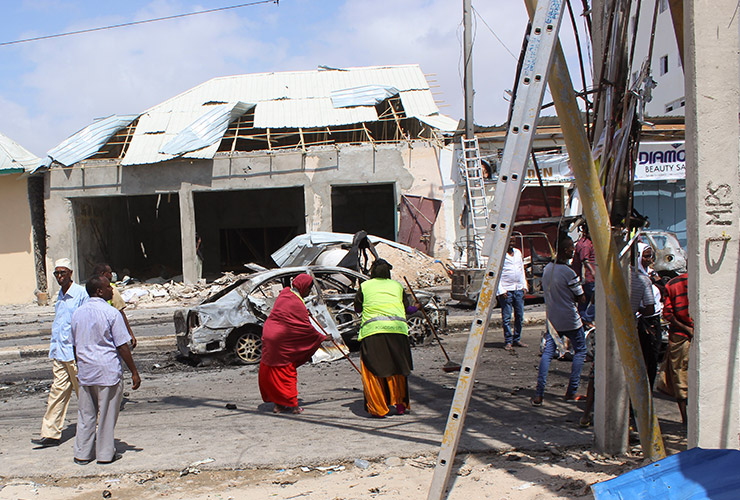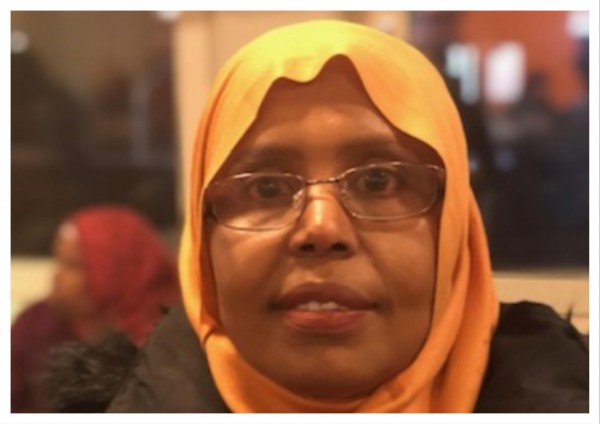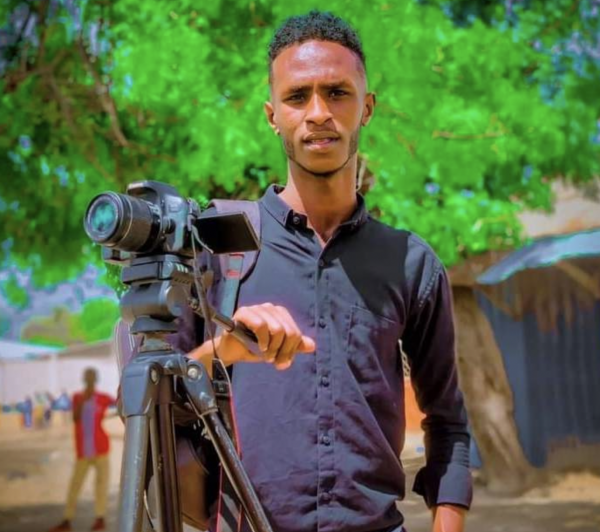When a car bomb exploded at a security checkpoint near the Somali national parliament in Mogadishu in January, killing four and wounding 10 others, freelance journalist Mohamed Ibrahim Bulbul rushed to the scene to report the news.
As police blocked off the area and emergency services worked to sort through the wreckage, a crowd of journalists gathered to collect information, take photos and interview survivors.
Soon after, however, police approached the journalists and began to forcibly confiscate TV crews’ cameras and recording equipment and, one by one, delete all of their footage.
Bulbul and several of his colleagues were harassed and threatened with arrest if they didn’t leave the scene, while another senior journalist was detained.
Such behaviour of the police is common because in Mogadishu state security forces have arbitrarily banned all coverage of terrorist attacks and other major security incidents.
In Somalia, this is just one of many tactics increasingly being used by authorities to control journalists, restrict coverage and shape public opinion.
“The government doesn’t want people to see the truth”, Bulbul told IPI. “This is because we have elections coming up later this year. In Somalia, this is a difficult time to be a journalist.”
Ramping up the pressure
In December 2020, Somalia is scheduled to hold its first universal elections in over 50 years.
This landmark parliamentary vote will be a major test for a fledgling democratic process in a country beset by political instability, systematic corruption and Islamist extremism of militant group al-Shabab.
Though an official date is yet to be set, Somalia’s federal government is already facing a massive logistical challenge to register voters, fund the polls, and enshrine a new constitution in time to hold the country-wide ballot.
Behind the scenes, however, authorities have already begun ramping up the pressure on independent and critical media to try to smooth the government’s path to victory in Somalia’s historically fragmented political system.
This clampdown under current president Mohamed Abdullahi Farmajo has resulted in a steadily worsening climate for press freedom in what is already one of the most challenging places in Africa to be a journalist.
Over the past year, raids on news outlets and broadcasters perceived as critical of the authorities have increased and independent news websites have been blocked or shut down on the orders of government officials and police commissioners.
Reporters covering politically sensitive topics such as official corruption or attacks by al-Shabab have also increasingly been targeted through arbitrary arrests, beatings and intimidation by security forces.
Feeling the squeeze
For Bulbul, a freelancer with Universal TV in Mogadishu, this was not the first time he’d felt the pre-election squeeze. After airing an investigative story in September 2019 about extortion attempts by al-Shabaab against the state, he was accused by government officials of spreading false news. “They tried to intimidate me into not doing investigative work”, he said. “They told me I deserved to be in jail.” After security forces came looking for him, he was forced to go into hiding for two weeks.
These kinds of tactics become more common ahead of elections in the country, he said. “In Somalia when elections come closer the government always increases its efforts at restricting journalists”, he added. “Many flee the country and report from abroad when the vote gets closer. I know others who eat and sleep in their offices for weeks until the election is over for fear of getting arrested on their way home.”
Tactics already on show
With several regional elections held at the end of 2018 and throughout 2019, the tactics used by government and security forces intimidate journalists have already been on full display.
Last year, 53 journalists were detained or arrested – up from 19 the previous year, Abdalle Ahmed Mumin, secretary general of Mogadishu-based Somali Journalists Syndicate (SJS), told IPI in a recent interview.
According to the rights group’s annual report, more than 80 journalists were also physically assaulted while on duty in 2019. Five broadcasters and one newspaper were the targets of serious forms of harassment, either raided, shut or suspended.
“Authorities have scaled up the level of intimidation in an attempt to silence the independent press”, Mumin told IPI. “Across Somalia, no journalist is able to even hold their camera up in a public place without encountering some type of harassment or threats from the security forces.”
This crackdown has put further strain on a notoriously difficult press freedom climate. Somalia consistently ranks as one of the most dangerous places in the world to be a journalist. Over the past decade, at least 47 journalists have been murdered in connection with their work, according to IPI’s Death Watch.
Not a good start to 2020
Recent incidents have heightened concerns that the government will ramp up the pressure further as the vote gets closer. Already, 2020 has got off to a bad start.
In January, a court in Hargeisa, the capital of the self-declared and self-governing state of Somaliland, which lies in the country’s northwest, sentenced Horn Cable TV editor Abdikadir Saleban Asayr to a year in jail and a fine on politically motivated charges of “spreading propaganda” about the city’s international airport. Somaliland is expected to hold its own parliamentary elections in 2020.
On February 5 journalist Omar Mohamed Somane of Mogadishu-based Radio Kulmiye was arrested by police in the city of Garrow in the semi-autonomous Puntland region. A few days later, journalist Hussein Ali Gesey, a Five Somali TV correspondent, was briefly detained by police in the Bay region over a critical Facebook post.
Just a few days ago, freelance TV and radio journalist Abdiwali Ali Hassan was shot dead by multiple gunmen outside his home in a town south of Mogadishu. He had recently published articles about the army’s latest offensive against al-Shabab. He is the first Somali journalist to be killed in 2020.
In the background, the Upper House of the federal Somali parliament recently approved an amendment to the Somali Media Law requiring all journalists to register on a government “record” database under the Ministry of Information and make it easier for the government to deny accreditation to those it doesn’t consider journalists.
The law would also establish a new Somali Press Council. However, this regulatory body would have its members recommended by the Ministry, raising serious concerns among Somali media rights groups about its independence.
Whether or not the law is passed, however, it looks set to be another challenging year for Somali journalists.



